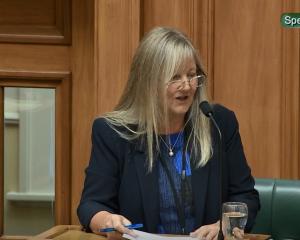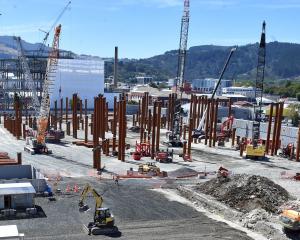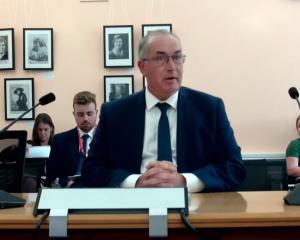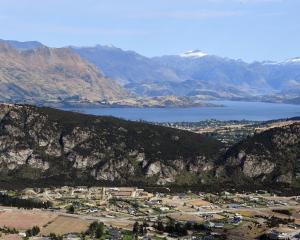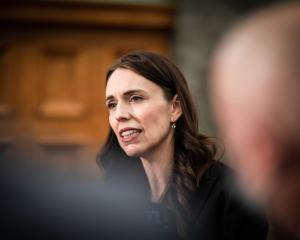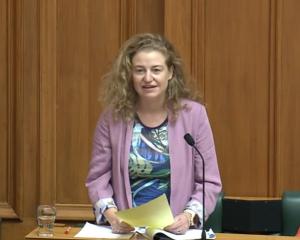It was a week of firsts in Parliament for our southern MPs: Rino Tirikatene passed his first Bill as a minister and Joseph Mooney asked his first primary at Question Time.
To the Labour MP for Te Tai Tonga first, who did not need to do too much heavy lifting on the Coroners Amendment Bill - the recently appointed Courts Minister was taking over work started by predecessor Aupito William Sio.

That said, it was still work which had to be done, and a law change which bereaved families around the country have been crying out for.
The Coronial Service is contacted when someone dies unexpectedly, violently or in suspicious circumstances, or if a doctor is unsure what caused a person’s death. Their investigation might lead to a formal inquest into the death, the object of the exercise being to prevent anything similar happening again if at all possible.
There are thousands of deaths in New Zealand every year, and not every death will require lengthy involvement of the local coroner.
There are enough that do though for the service to have been overwhelmed with work in recent years, resulting in interminable and agonising waits for families awaiting answers for why their loved one died.
Hence, the Coroners Amendment Bill, which enables a coroner to issue written findings on the cause of a death only, if they consider there is no public interest in examining the broader circumstances. That sounds inconsequential, but it is expected that the change will dispense with scores of straightforward deaths more quickly and free coroners up for more complex tasks.
Also, and again with freeing up senior coroners in mind, a new role of "coronial assistant" is created, who can do everything a coroner can barring deciding an inquest should be held, or actually conducting one.
Mr Tirikatene noted that the Justice Select Committee received about 2500 submissions on the Bill, a statement in itself of how crucial reform in this area of law is.
"This Bill is part of a wider work programme currently under way to improve the coronial system. This includes appointing more permanent coroners, appointing clinical advisers to assist coroners, and better integrating tikanga Māori into coronial processes.
"The targeted amendments in this Bill will facilitate better access to justice for families and whānau, while ensuring the public interest continues to be well served by the coronial system."
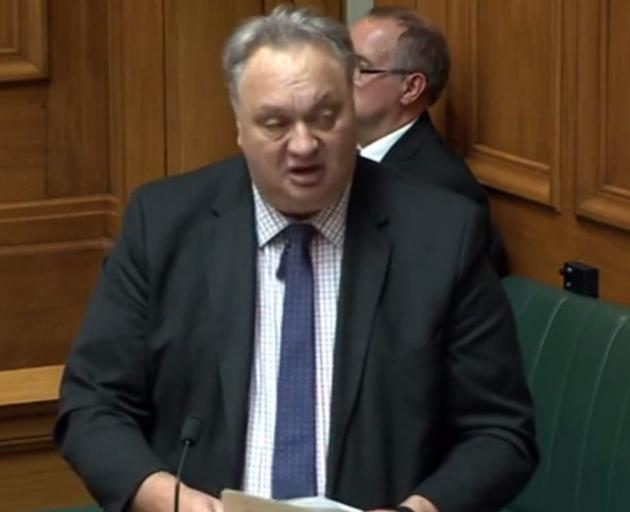
As is traditional, on Thursday Mr Tirikatene got to take a lap of honour around the chamber when he rose to answer Question 11 from Labour colleague Marja Lubeck: "What progress has been made to reduce delays in the coronial system?"
After graciously acknowledging that the law change was agreed to unanimously, Mr Tirikatene added the first chief clinical adviser working with the coroner's court had just been appointed, and that a full team of clinical advisers would shortly follow.
Meanwhile, on Wednesday Southland National MP Joseph Mooney, finally, got to ask his first primary question.
For the past 2-1/2 years, if only at Question Time, Mr Mooney has followed the traditional advice given to first term backbenchers and kept very quiet — apart from one scolding for talking too loudly in the chamber. It has not helped that National’s allocation of primary questions is so small that once the frontbench has laid its claim very few scraps remain for the rest of caucus.
Mr Mooney’s recent elevation to forestry spokesman though, afforded another opportunity for National to do something it very much wanted to do on Wednesday afternoon ... question Stuart Nash about his performance as a minister.
Mr Nash, of course, was not available to be grilled, having been fired as forestry minister — and every other one of his portfolios for that matter — by Prime Minister Chris Hipkins the day before. Labour instead served up Environment Minister David Parker in the stead of acting Forestry Minister Megan Woods, to answer a range of questions about the ministerial inquiry into forestry slash and land use.
The rather snippy-sounding former MP for Otago noted that he had indeed visited the disaster scene, and that he had written the terms of reference for the review, terms which controversially omitted Hawke's Bay.
Mr Parker’s reasoning that the type of timber damage around Napier and Hastings was caused by uprooted willows rather than forestry slash went unchallenged, as Mr Mooney narrowed in on the point he wished to attack on ... the circumstances surrounding one of the three ministerial inquiry panel members standing down on the same day as Mr Nash was dismissed.
"Would he consider it appropriate for sponsoring ministers of a ministerial inquiry to have declared any potential conflicts of interest to the Cabinet Office?," Mr Mooney asked.
"Yes," Mr Parker replied, "but I'm not aware of there being anything untoward in that regard, in this event."
Although given that potentially untoward matters relating to Mr Nash seem to be regularly turning up at the moment, there may yet be more to come on his time as a minister.
With friends like these
The Taxation (Annual Rates for 2022-23, Platform Economy, and Remedial Matters) Bill (No 2) does not sound like a bundle of laughs, but Dunedin Labour MP David Clark was having a whale of time delivering his third reading speech on Tuesday.
"It's interesting," he trilled.
"I was looking back in researching this speech at some of the previous positions taken in this House on the platform economy, and one that that stood out to me was a member of this House being really clear that ‘A strength of the New Zealand tax system is the fact that taxes are applied fairly and evenly, and there are few exceptions. There's a whole lot of positivity around our GST rules being applied equally, with few exceptions, to help us ensure that tax is fair, efficient, and simple’. "These are all words of the sometimes very wise the Hon Michael Woodhouse, who we heard speak in the debate not so long ago, speaking in favour of the National Party app tax in 2016 - not so long ago."
Dr Clark went on to quote Mr Woodhouse again, happy in the knowledge that his Dunedin National list MP rival had already spoken on the Bill and wasn’t going to get a right of reply.
Revenge, of a sort
Mr Woodhouse did get one back on Thursday during his reply, as Shadow Leader of the House, to Grant Robertson’s summary of what Parliament would be up to next week.
Mr Woodhouse pointed out that No 5 on the order paper, the Forests (Legal Harvest Assurance) Amendment Bill, was in the name of someone not responsible for it ... that being the former Forestry Minister.
"I note that point, and I'm sure that by the time we get to Government order of the day No 5 that will have changed," Mr Robertson responded tartly.

